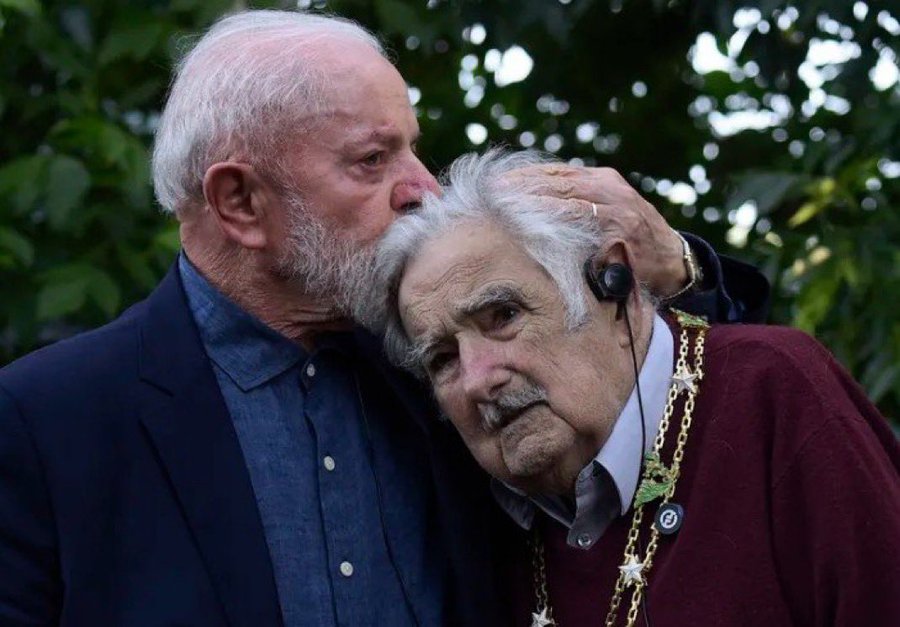José Mujica, Uruguay’s ‘Poorest President
José “Pepe” Mujica, Uruguay’s former president and a global symbol of humility and progressive ideals, died on May 13, 2025, at the age of 89. Known as the “world’s poorest president” for his austere lifestyle, Mujica’s death was announced by Uruguayan President Yamandú Orsi, who described him as a “president, activist, guide, and leader” whose profound love for his people left an indelible mark. Mujica succumbed to esophageal cancer, which had spread to his liver, a battle he chose to face without further treatment, stating in his final interview, “A warrior has the right to rest.”

Born on May 20, 1935, in Montevideo, Mujica’s early life was shaped by modest circumstances. His father’s death when he was eight left him to be raised by his mother, a flower seller, in “dignified poverty.” This upbringing influenced his lifelong commitment to simplicity and social justice. In the 1960s, inspired by the Cuban Revolution, Mujica joined the Tupamaros, a Marxist guerrilla group that conducted bank robberies, kidnappings, and bombings to challenge Uruguay’s government. His revolutionary zeal led to multiple arrests, a near-fatal shootout in 1970 where he was shot six times, and a daring prison escape through a 130-foot tunnel. However, the Tupamaros’ actions contributed to the chaos that precipitated a 1973 military coup, plunging Uruguay into dictatorship. Mujica spent nearly 15 years in prison, including a decade in solitary confinement, where he endured torture and befriended ants and frogs to cope with isolation.
Released in 1985 as democracy returned, Mujica renounced violence, reflecting that “hatred just makes us all more stupid.” He embraced electoral politics, co-founding the Movement of Popular Participation within the leftist Broad Front coalition. His political ascent included roles as a congressman, senator, agriculture minister, and ultimately president from 2010 to 2015. During his presidency, Mujica oversaw an economic boom, reduced poverty, and introduced groundbreaking social reforms, including the legalization of abortion, same-sex marriage, and recreational marijuana—making Uruguay the first country to do so. These policies, coupled with a surge in foreign investment, earned Uruguay The Economist’s first-ever “country of the year” title.

Mujica’s global fame stemmed not only from his policies but also from his rejection of presidential trappings. He lived with his wife, Lucía Topolansky—a former Tupamaro and later vice president—in a modest farmhouse outside Montevideo, where they grew vegetables and once tended chrysanthemums. He drove a 1987 Volkswagen Beetle, donated most of his salary to charity, and sipped maté during interviews, embodying his belief that “overconsumption is killing the planet.” This earned him the nickname “world’s poorest president,” though he preferred “sober,” saying, “Poor is someone who needs a lot.”
Despite his progressive achievements, Mujica’s legacy is not without controversy. Critics, including former President Julio María Sanguinetti, argued that the Tupamaros’ violence weakened democracy, paving the way for dictatorship. Mujica himself expressed regret in 2007, lamenting that his armed struggle failed to prevent the coup and left him absent when Uruguayans needed to resist. Yet, his ability to reconcile with former adversaries, as seen in his 2023 book Conversaciones sin ruido with Sanguinetti, underscored his commitment to national unity.

Diagnosed with esophageal cancer in April 2024, Mujica faced his illness with characteristic stoicism. Radiation initially reduced the tumor, but the cancer returned, compounded by an autoimmune disease and kidney issues. In January 2025, he announced his decision to forgo further treatment, telling Búsqueda, “My cycle is over.” Even in his final months, he campaigned for Orsi’s election, ensuring his political legacy endured.
Mujica’s death prompted tributes from across Latin America and beyond. Brazilian President Luiz Inácio Lula da Silva called him a defender of democracy and social justice, while Chilean President Gabriel Boric praised his hope that “things can be done better—step by step.” Ordinary Uruguayans gathered outside the Movement of Popular Participation headquarters in Montevideo, mourning a leader who lived as one of them.

Mujica’s philosophy, articulated in his final interview, resonated widely: “We are too focused on wealth and not on happiness … Before you know it, life has passed you by.” He leaves behind no children but a nation transformed and a world inspired by his radical simplicity. His ashes, per his wishes, will rest under an araucaria tree near his farmhouse, beside his beloved three-legged dog, Manuela, and eventually Lucía, his partner in an “almost Homeric” journey.


One thought on “José Mujica, Uruguay’s ‘Poorest President”